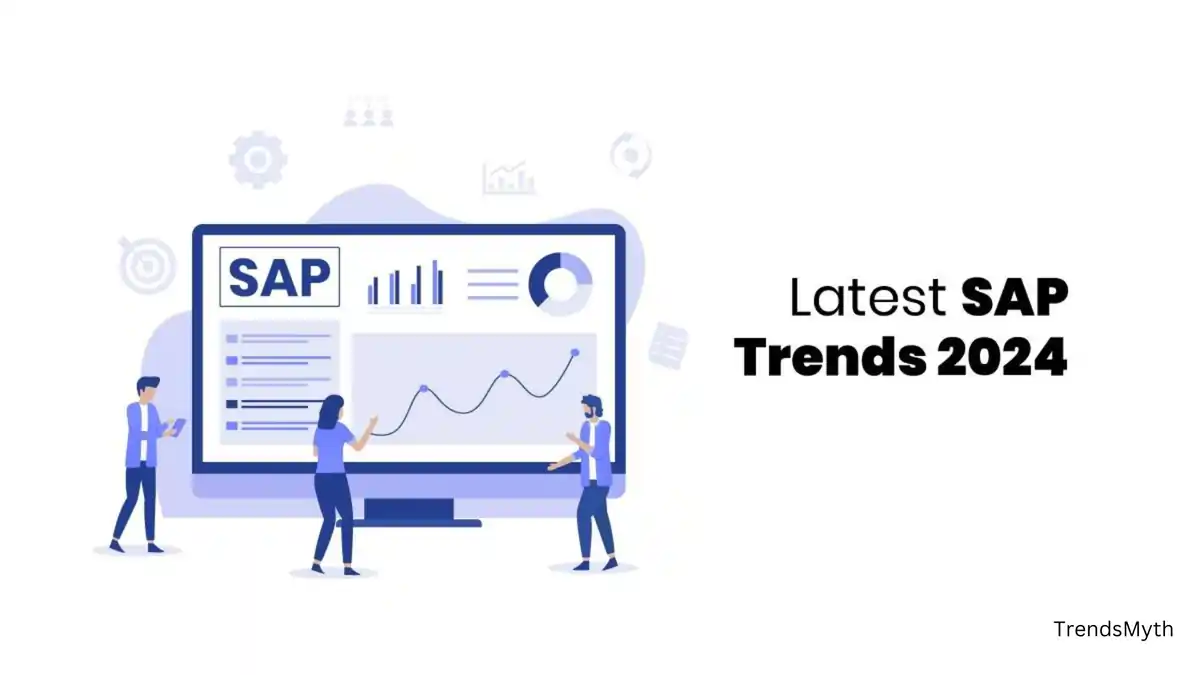SAP Cybersecurity: Technology has completely changed how businesses communicate and interact with each other and their customers. With the rapid advancement of technology, it has become challenging for businesses to keep track of the various technologies they use.
This has also introduced new challenges in managing the security of system applications and products (SAP).
For years, security officials have relied on the SAP BASIS team to manage SAP security. However, SAP technology has significantly evolved in recent years, affecting its cybersecurity structure.
Improving SAP security is crucial to protect against tampering and deletion of critical business data. If you have questions about SAP cybersecurity, this blog will provide the answers you need. We explore the latest trends in SAP cybersecurity to keep you informed and prepared.
SAP Cybersecurity
An enterprise resource planning (ERP) system called System Applications and Products (SAP) helps companies set up a central location for keeping track of corporate data.
Departments may more easily access and exchange shared data thanks to the unified system, which enhances teamwork and the working environment.
There are a lot of service providers now than there were a few years ago, which might be difficult, particularly for freshers. Still, you may find more methods to speed up the process and Trendsmyth IT support here. But make sure the seller has access to hundreds of fully functional modules that address nearly every facet of your company.
Your manufacturing line may be much enhanced by integrating the SAP system into your business operations, but it won’t help if an attacker gains access to and compromises it.
SAP Cybersecurity is automating and managing vulnerability management, threat detection, recovery plans, and other related tasks. They guarantee that SAP platforms are safe from advanced cyberattacks in the contemporary era.
The days of just implementing an on-premise SAP system are long gone. Thanks to modern technology, you may swiftly deploy and use SAP systems that are cloud-based and hybrid, such as S/4HANA, ABAP, and others.
Crucial Trends For SAP Cybersecurity
IT staff members must stay up to date on the newest developments. These advancements impact SAP cybersecurity by offering fresh approaches to strengthen the system’s defenses.
All levels of the fundamental hardware and network, the database and apps, the organizational processes, and so forth continue to be improved. Below we have outlined the important trends for SAP cybersecurity:
Cloud Technology
A dispersed collection of IT resources, the cloud can provide computing and storage on demand. By concentrating development resources on its cloud-based solutions, SAP has placed a wager on the cloud.
A portion of these goods and services are currently offered. Nonetheless, there is a tendency toward an increasing amount of cloud hosting for applications such as SAP S/4HANA Cloud and its database SAP HANA Cloud.
Businesses will experience greater cost, scalability, and security advantages when they shift their enterprise resource planning (ERP) systems to the cloud. Furthermore, cloud-based SAP installations are protected by several levels of security.
The facilities make use of software, networks, and physical controls. But there are other security problems, like data management and migration.
Cloud transformation led by experts solves these issues. The cloud strategy is supported by a sensitive evaluation.
Your systems are brought up to date with application modernization and regulatory compliance based on this approach. You can rely on SAP cybersecurity when you have managed security for the top cloud platforms.
Artificial Intelligence and Machine Learning
Computers were usually designed to carry out particular computations in a straight-forward, sequential manner.
However, more modern AI-powered methods imitate human thought processes. One such method is machine learning (ML), in which devices are designed to explore an issue until they figure out the solution.
The market is constantly seeing new applications for AI and ML, which are growing in popularity. AI and ML in SAP cybersecurity help businesses identify and stop threats before they have a chance to harm.
A bank might train a machine learning algorithm, for instance, to recognize hacking attempts. At that point, it could stop attacks before they compromise client accounts.
Blockchain
Compared to cloud or AI technology, blockchain technology is even more recent. A secure online transaction record is maintained via a blockchain ledger.
Although there are many other intriguing applications for blockchain technology, these transactions are frequently for cryptocurrencies like Bitcoin. For example, “smart contracts” might be used by enterprises in the future, and blockchain technology will become essential to global finance and logistics.
Blockchain technology can safeguard company data authenticity in SAP cybersecurity. A blockchain ledger will stop anybody from tampering with your data since it creates an unchangeable record of occurrences.
Data integrity, which is the cornerstone of the information systems that power modern business, depends on this.
SAP has long supported the Hyperledger Project, which is expanding the use of highly secure blockchain technology across several industries.
By flawlessly tracking contributions, the adoption of blockchain technology in SAP cybersecurity could further increase trust in the open-source modules used in enterprise software.
Quantum Computing
Quantum computing is the trend that is furthest distant from existing technology in terms of its applicability to business. Several logic gates are used to process electricity in traditional computers.
Quantum computing, on the other hand, depends on two relatively recent physics discoveries, “superposition” and “entanglement.”
This implies that SAP cybersecurity may be compromised in the future by quantum computers that may crack the current encryption.
Consider all of the data that is encrypted that is available, including enterprise, military, and government data, financial data, and medical data. Consider all of that data openly right now.
Threat actors are gathering and storing data in anticipation of the day when quantum hacking is possible. Thus, quantum-resistant encryption techniques will need to be developed by technological companies.
Nonetheless, new functionalities like secure key sharing are made possible by quantum cryptography. The key to decrypting encrypted messages should only be in the hands of the transmitting and receiving parties.
With traditional technology, a hacker might attempt to take the key without being noticed. However, any such attempts on a future quantum system would be discovered thanks to quantum mechanics.
DevSecOps and Zero Trust Methodologies
Software experts are increasingly adopting two strategies to guarantee SAP cybersecurity. One of these, called DevSecOps, derives its name from the fusion of IT operations, security, and development.
This strategy makes organizations more agile by heavily utilizing automation throughout the software lifecycle. Unlike past approaches, security is now viewed as a fundamental part of the overall process rather than an add-on.
As was previously said, SAP technology enables companies to establish centralized storage for private information, fostering better communication and cooperation. To improve SAP cybersecurity, security measures must be put in place.
Additionally, carry out a thorough investigation to determine the best option to include in your company’s operations, enhancing your return on investment (ROI).










